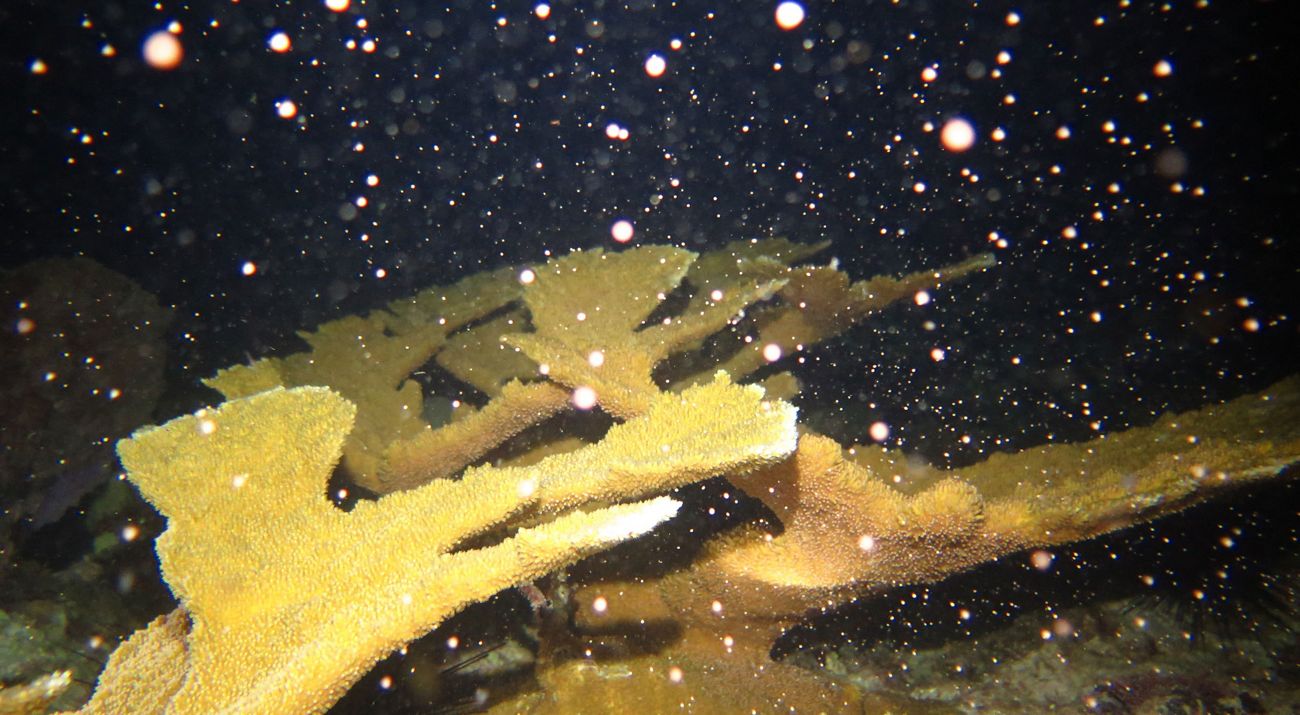A Coral Science Turning Point
On a first-of-its-kind mission in the Virgin Islands, we partnered with some of the world's best in coral science to create new elkhorn coral embryos.
A Milestone Underwater Mission
For the first time in the Virgin Islands, The Nature Conservancy and partner SECORE International conducted a successful coral spawning expedition and used sexual reproduction techniques to grow healthy baby corals. The expedition was part of TNC’s initiative to address the coral reef crisis in the Caribbean—and around the globe—by using advanced coral propagation methods in land-based labs to grow and outplant new corals at scales never before possible.
After conducting research to predict the small window of time when corals would be spawning in St. Croix, a team of scientists descended on the island to conduct underwater explorations through several nights—waiting for the corals to naturally begin releasing gametes, or bundles of eggs and sperm. The expedition team's patience finally paid off when elkhorn corals began to spawn one night, and they went to work collecting as many as they could. Elkhorn is an essential Caribbean reef-building species that is currently listed as threatened in the region, along with six other key coral species.
What Does This Mean for Coral Reefs?
Back at the lab, the scientists' efforts resulted in 750,000 coral embryos growing in protected nurseries. Facilitating the natural sexual reproduction process has two primary benefits. Because a massive number of gametes is released into the ocean at one time, a large number of embryos can be created as a result of one spawning mission. In addition, by collecting gametes across multiple coral colonies, scientists can help ensure that the natural genetic diversity of the gametes is preserved as they are fertilized and grown in the lab. This genetic diversity promotes resilience and increases the corals' chances of survival.
The goal after completing fertilization in the lab is to allow the embryos to grow in land-based nurseries, safe from predators and other threats, until strong enough to be returned to the ocean. TNC, SECORE and other partners are working to develop new methods of settling the young corals onto reefs to increase their chances of survival and bring new life to ocean ecoystems. Essentially, this process helps coral reefs heal themselves, using the power of nature to restore nature on a broad scale.
Another exciting development occurred during the expedition, when our coral science team witnessed spawning elkhorn corals that TNC had outplanted at Green Cay in St. Croix in 2012. In other words, these outplants had grown successfully and were now reproducing naturally on their own. This triumph embodies TNC's goal of restoring reefs in revolutionary ways that have meaningful, lasting impact for our marine environments and those who depend on them. These milestones in the Virgin Islands not only advance our work in the Caribbean, but also inform large-scale restoration initiatives in surrounding marine regions and around the world.
